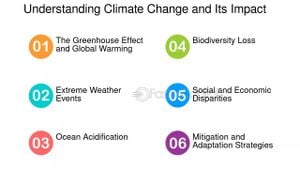Navigated through the rolling hills of Pennsylvania and West Virginia, the educational landscapes reveal some of the nation’s most renowned colleges and universities. From Ivy League aspirants to vibrant state institutions, these schools are not just places of education; they are gateways to future opportunities.
Pennsylvania boasts some impressive educational establishments, including the prestigious University of Pennsylvania, known for its rigorous academics and influential alumni. Founded by Benjamin Franklin, it remains at the forefront of research and innovation. The university nurtures bright minds and encourages interdisciplinary studies, which is why it draws students nationally and internationally.
Another noteworthy institution is Carnegie Mellon University, located in Pittsburgh. Renowned for its top-tier programs, especially in engineering and computer science, Carnegie Mellon's commitment to innovative research and creative expression continues to make waves globally. With its diverse curricula and collaborative environment, students here are prepared to tackle real-world challenges.
Not to be overlooked, Penn State University garners attention for its expansive campus and vibrant student life, coupled with high academic standards. This university is committed to not just imparting knowledge but also fostering meaningful student experiences. With over 160 majors available, the significant variety ensures students can find their true passions during their college years.
Meanwhile, West Virginia brings its universities to the forefront, with West Virginia University (WVU) being the most prominent. Tucked away in Morgantown, this institution is known for its strong emphasis on research, particularly related to health sciences and forestry. The scenic surroundings add to the charm, making it not only a conducive learning environment but also one for personal discovery.
Marshall University, based in Huntington, stands as another pillar of higher education. It has gradually earned recognition for its dedicated focus on community service and integration with the local culture. Students here get to blend academic pursuits with hands-on community involvement, enhancing their growth beyond the lecture hall.
These colleges also highlight their commitment to fostering diversity and inclusion within their campuses. Programs aimed at supporting marginalized students and promoting equity are increasingly becoming focal points for both prospective and current students. This approach amplifies the quality of education and connection among students, preparing them for the diverse world beyond the campus gates.
Financial aid options are also abundant. Both states offer resources to help mitigate college expenses. Scholarships, grants, and work-study opportunities are available, and schools encourage students to explore all available resources. This financial support often removes barriers, allowing talented individuals from various backgrounds to pursue higher education.
Yet, the task of selecting the right college can be overwhelming. Factors students typically weigh include cost, distance from home, academic offerings, and campus culture. Open days and virtual tours help ease this process, allowing students to glimpse their potential future, meet faculty, and connect with current students.
Besides academics, the vibrant campus life at these institutions is compelling. Students engage in various extracurricular activities, ranging from sports and the arts to Greek life and service organizations. Such involvement helps nurture teamwork skills, leadership qualities, and friendships, making the college experience holistic.
The arts scene is particularly vibrant at these institutions, with opportunities to attend music festivals, theater productions, and visual art exhibitions. Such events not only enrich student life but also imbue campuses with creative energy, encouraging all students to explore their artistic sides.
Networking plays another key role during the college experience. Many institutions have extensive alumni networks, and students are encouraged to tap these connections for mentorship, internships, and job placements post-graduation. Seminars and workshops often invite successful alumni to provide insights, fostering invaluable relationships.
Navigational challenges during this educational pursuit, such as mental health, are increasingly acknowledged. Institutions are ramping up support services ranging from counseling to workshops aimed at stress management, ensuring students have the tools they need to thrive both academically and emotionally.
Through all the offerings of these top colleges, one truth remains: education serves not just as acquisition of knowledge but as preparation for life's myriad challenges. With dedicated faculty, active student populations, and supportive environments, Pennsylvania and West Virginia’s top institutions weave together the threads of academic success, personal growth, and community engagement, forming the fabric of modern higher education.



